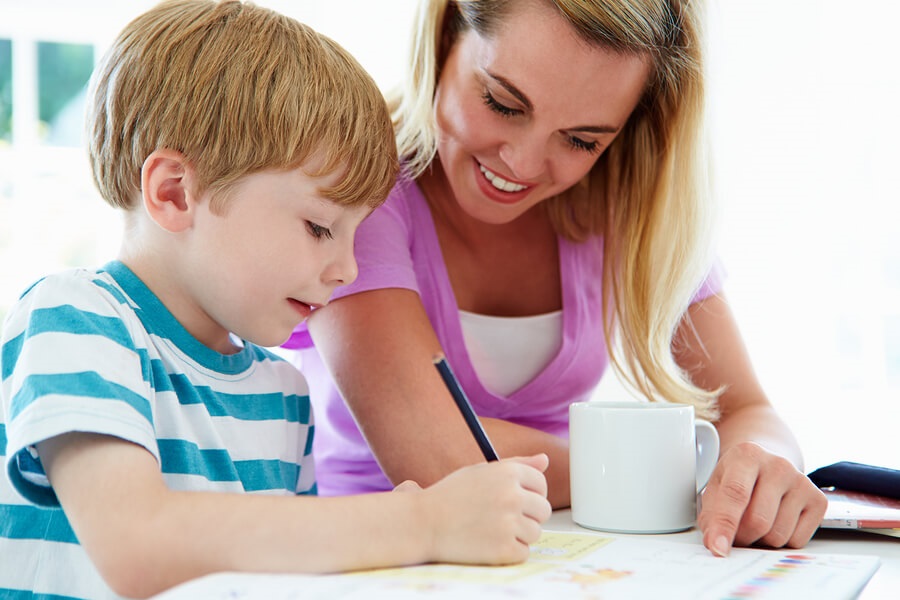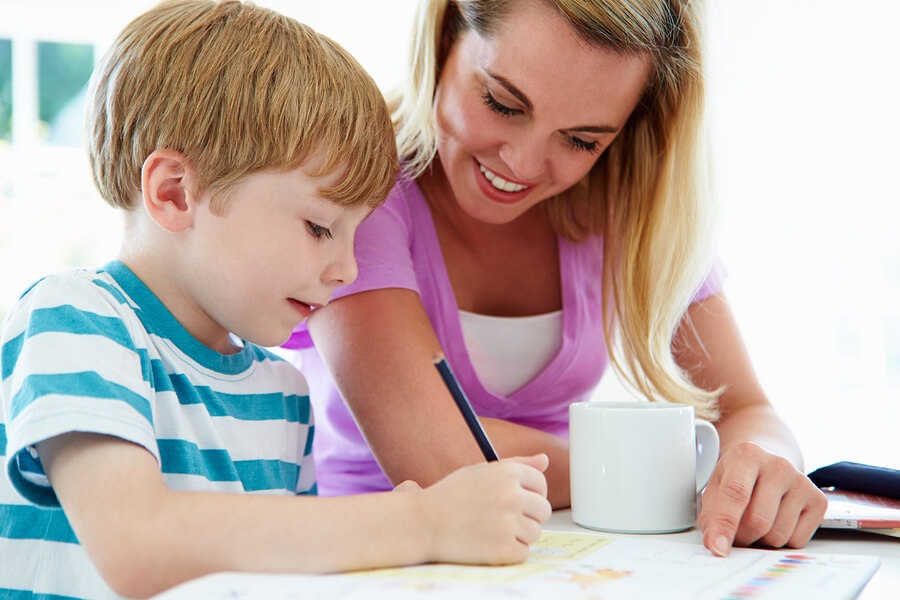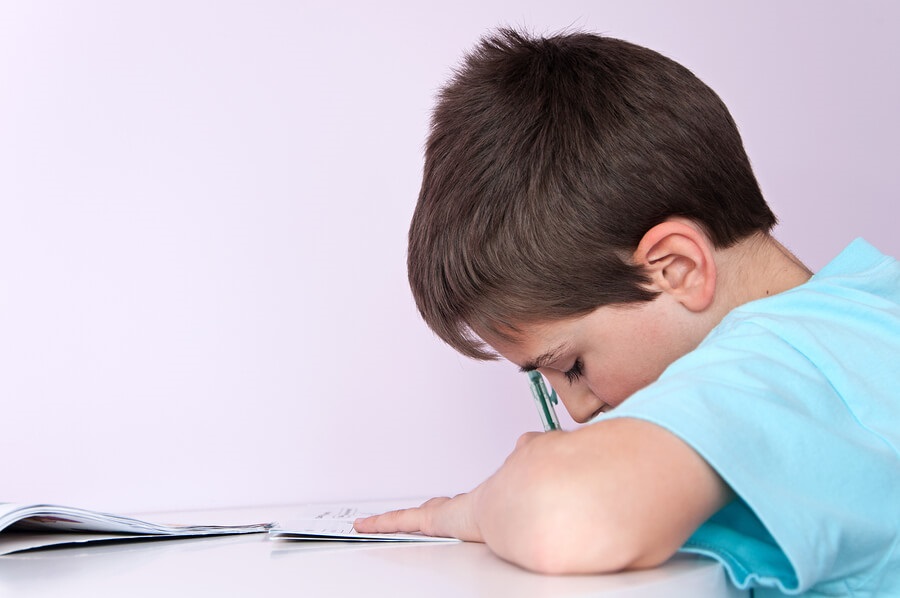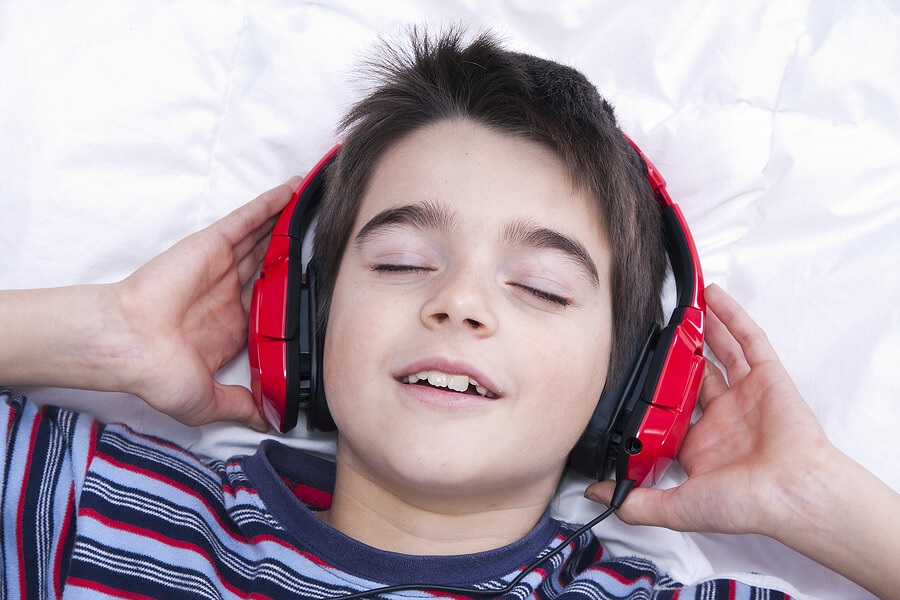
Use Positive — But Not Excessive — Reinforcement

Use Positive — But Not Excessive — Reinforcement
In the weeks leading up to the exam, acknowledge that it’s coming up and remind your child that he is well prepared from his studies all year. But take care not to overdo it. The NYU Child Study Center says that excessive reassurance can cause an anxious child to seek to discredit their parent’s opinion. In other words, your child might give into his self doubts as a way of rebelling against your praise. Also, avoid talking about your own experiences with testing when you were a student. Saying things like “Tests were easy for me” or “I was a horrible test taker” can affect your child’s anxiety level. As with any kind of test, avoid threatening punishment for poor performance so that you can remove the fear factor.
Pack a “Lovey” or Lucky Charm

Pack a “Lovey” or Lucky Charm
Some teachers might allow your young child to bring their “lovey,” a family photo, or a “lucky charm” to the test. Ask your child’s teacher in advance if this will be allowed. If not, pack one in your child’s backpack for him to have up until he steps into the test room. A quick squeeze of a stuffed animal right before the test could help calm your child.
Teach Positive Self-Talk

Teach Positive Self-Talk
If you have heard your child call herself “stupid,” say she’s “just going to fail,” or put herself down in the weeks leading up to an exam, it’s time to step in. Teach your child to use affirmations, or positive self-talk, to turn her thinking around from debilitating negative thoughts. StressFreeKids.com offers these examples of affirmations for kids to repeat in their heads while taking deep breaths before and during tests:
- “I am calm, focused, and smart.”
- “I have studied and I am prepared.”
- “I calmly trust my knowledge.”
- “I am doing the best I can, and my best is terrific.”
- “When angry or stressed, I take deep, slow breaths.”
- “I remember to breathe deeply during my tests.”
- “Breathing deeply brings more oxygen to my brain.”
- “Being calm helps me to remember more.”
- “I have enough time.”
You can also download this free 8-minute mp3 of “Affirmations for Test Taking Anxiety” courtesy of StressFreeKids.com.
Practice Meditation and Deep Breathing

Practice Meditation and Deep Breathing
“Just relax!” Commanding your child to chill out isn’t going to help combat his anxiety. The NYU Child Study Center says that relaxation is a skill that requires learning and practice, and advises keeping relaxation practices short and simple. Weave deep breathing and moments of meditation into everyday life, and make it a family affair. For example, if you feel a bit of road rage coming on while your kids are in the car, take the opportunity to pause and say, “I feel annoyed and need to take a few deep breaths. Will you guys take some deep breaths with me?” Or, if your child is getting frustrated with a homework question, encourage him to pause, take some deep breaths, and return to the difficult question in a moment or two.
Psychology Today advises teaching kids the “Balloon Breath” technique — breathing slowly and deeply into the belly (as if filling up their entire torso like a balloon), focusing attention a couple of inches below the belly button, which helps people feel calm and centered. Remind your child that he’ll need to use quiet deep breaths (in and out of his nose) on test day.
Use Guided Imagery

Use Guided Imagery
Guided imagery may seem “new age-y” but studies have shown that it can reduce anxiety, stomach pain, and headaches in children. Guided imagery is the use of gentle words or stories to bring out calm and positive feelings. Practice using this technique with your child in the weeks leading up to a big test so that she’s used to it and can rely on it the night before or morning of the exam. Purchase guided-imagery CDs or digital downloads, or find free recordings of relaxing guided-imagery stories for children — such as this one by StressFreeKids on YouTube. Or, find free scripts of guided imagery to recite to your child, such as these two by TheMindfulWorld.org.
Listen to Relaxing Music or Sounds

Listen to Relaxing Music or Sounds
Like guided imagery, relaxing music and sounds can have a positive effect on your child’s nerves. Search for nature sounds and relaxing music for children on YouTube and iTunes. Choose instrumental songs without lyrics, which can get stuck in your child’s head during study sessions and testing. Your child probably can’t bring a music player into the testing room, but he can listen to music on the way to school or during lunchtime or breaks on his test day.
Talk with the Teacher About Relaxation Techniques

Talk with the Teacher About Relaxation Techniques
Standardized test anxiety has become so common that some teachers take special steps to help students relax. For example, the National Education Association reports that some teachers keep a basket of stuffed animals in the classroom for kids to hug before test time, while others use aromatherapy and have kids close their eyes and take deep breaths together before sitting down for an exam. Some teachers even allow kids to kick off their shoes, shake out their fingers, and stretch out their limbs before exams begin. Talk with your child’s teacher about your child’s anxiety (she’s probably not the only one with serious jitters!) and any simple ways the teacher can foster relaxation on test days.
Manage Learning Disabilities and Anxiety Disorders

Manage Learning Disabilities and Anxiety Disorders
Did you know that about one in four children with ADHD also has an anxiety disorder? If your child has learning difficulties, a developmental disorder, and/or an anxiety disorder, work with his pediatrician and teacher to make a plan for managing test-day stress as best you can, through medication, relaxation techniques, or a combination of treatments. Know the ins and outs of your child’s Individualized Education Program (IEP) and any appropriate testing accommodations through Section 504 — such as extended time or a private room for an exam — and confirm test-day plans with your child’s teacher.
Stick with Your Usual, Healthy Routine

Stick with Your Usual, Healthy Routine
Children thrive on routines. So when a big test is coming up on the calendar, try to stick with your usual bedtime and morning routine. Be sure your child gets enough sleep, eats a healthy breakfast, and has any materials she needs for the exam (ask the teacher). Avoid making special plans the night before the test; instead, plan a surprise fun activity for the evening after your child finishes her exams. It’s a great way to celebrate and take a collective sigh of relief!















